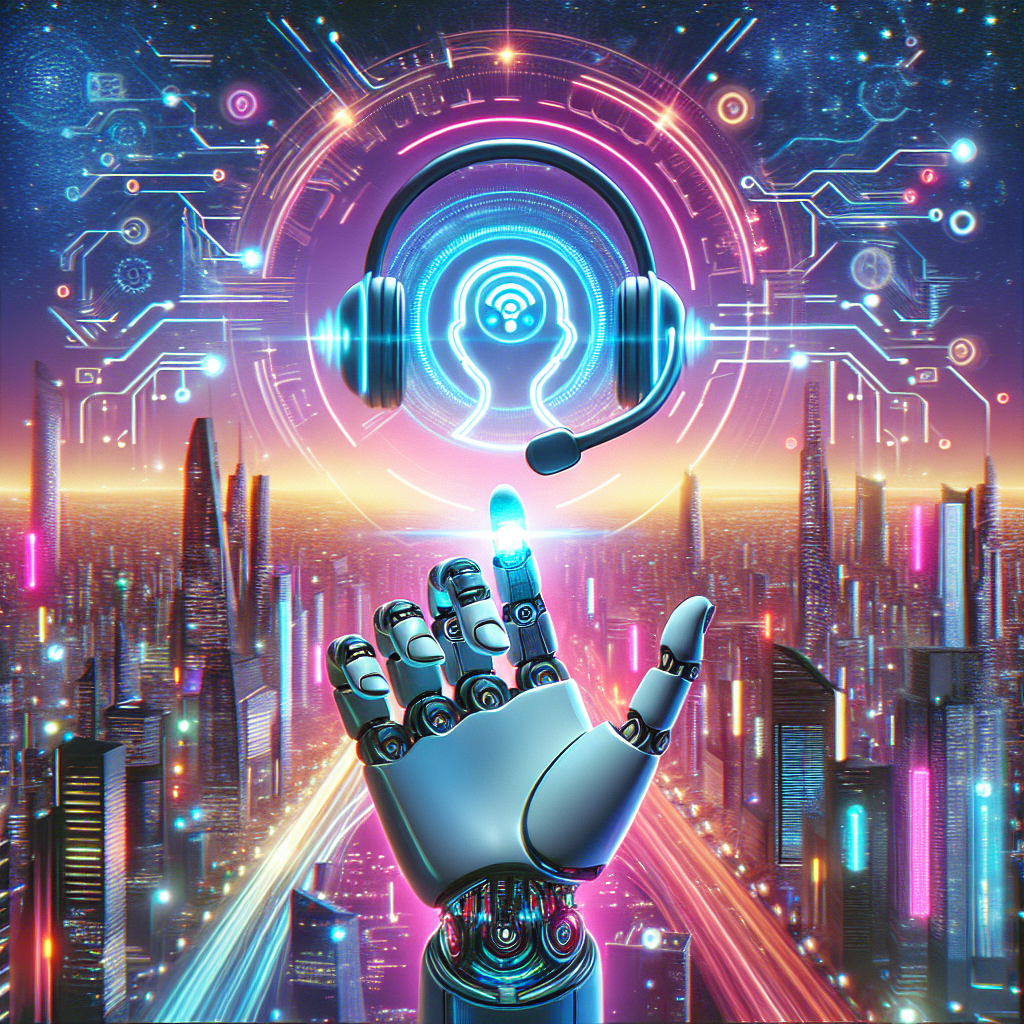In today’s digital era, customer service has become an integral part of businesses across various industries. With the rise of technology and the increasing demand for personalized and efficient customer support, companies are turning to artificial intelligence (AI) to revolutionize their customer service processes. AI-powered customer service solutions are changing the way businesses interact with their customers, providing faster response times, improved accuracy, and enhanced customer experiences.
AI is transforming customer service by automating repetitive tasks, analyzing customer data to provide personalized recommendations, and enabling businesses to engage with customers through various channels such as chatbots, virtual assistants, and voice recognition systems. These AI-powered solutions are helping businesses to streamline their customer service operations, reduce costs, and improve customer satisfaction.
One of the key ways AI is revolutionizing customer service is through chatbots. Chatbots are AI-powered virtual assistants that interact with customers in real-time, answering their queries, providing product information, and guiding them through the purchasing process. Chatbots are available 24/7, allowing businesses to provide round-the-clock customer support without the need for human agents. This not only improves customer satisfaction but also reduces the workload on customer service teams, allowing them to focus on more complex issues that require human intervention.
Another way AI is transforming customer service is through predictive analytics. AI algorithms analyze customer data, such as purchase history, browsing behavior, and demographics, to predict customer preferences and provide personalized recommendations. This enables businesses to offer targeted promotions, product suggestions, and personalized marketing messages to customers, increasing customer engagement and loyalty.
AI-powered voice recognition systems are also revolutionizing customer service by enabling businesses to provide hands-free, voice-activated customer support. Customers can interact with virtual assistants through voice commands, making it easier and more convenient for them to get the information they need. Voice recognition systems can also be integrated with other AI technologies, such as natural language processing, to provide more accurate and efficient responses to customer queries.
In addition to improving customer service, AI is also helping businesses to optimize their operations and make data-driven decisions. AI algorithms can analyze vast amounts of customer data in real-time, identifying trends, patterns, and insights that can help businesses to improve their products, services, and customer experiences. By leveraging AI-powered analytics, businesses can gain a competitive edge in the market and stay ahead of their competitors.
Despite the many benefits of AI-powered customer service solutions, there are also some challenges and concerns that businesses need to consider. For example, there is a risk of AI bias, where algorithms may make decisions based on biased or incomplete data, leading to discriminatory outcomes. Businesses need to ensure that their AI systems are trained on diverse and unbiased data to avoid such issues.
Furthermore, there is a concern about the impact of AI on human jobs. As AI technology advances, there is a fear that AI-powered solutions may replace human agents in customer service roles, leading to job losses. However, businesses can mitigate this risk by upskilling their employees and reassigning them to more strategic and complex tasks that require human intervention.
Overall, AI is revolutionizing customer service in the digital era by providing businesses with the tools and technologies they need to deliver personalized, efficient, and seamless customer experiences. By leveraging AI-powered solutions, businesses can enhance their customer service operations, improve customer satisfaction, and gain a competitive edge in the market.
FAQs:
1. How can businesses implement AI-powered customer service solutions?
Businesses can implement AI-powered customer service solutions by partnering with AI technology providers, developing in-house AI capabilities, or using AI platforms to build and deploy chatbots, virtual assistants, and other AI-powered tools.
2. What are the benefits of using AI in customer service?
Some of the benefits of using AI in customer service include faster response times, improved accuracy, personalized recommendations, round-the-clock customer support, and reduced costs. AI-powered solutions also enhance customer satisfaction and loyalty by providing seamless and efficient customer experiences.
3. What are some of the challenges of using AI in customer service?
Some of the challenges of using AI in customer service include AI bias, job displacement, data privacy concerns, and the need for ongoing maintenance and updates. Businesses need to address these challenges to ensure the successful implementation of AI-powered customer service solutions.
4. How can businesses ensure that their AI systems are unbiased?
Businesses can ensure that their AI systems are unbiased by training their algorithms on diverse and unbiased data, conducting regular audits and reviews of their AI systems, and implementing ethical guidelines and standards for AI development and deployment.
5. What are some best practices for implementing AI in customer service?
Some best practices for implementing AI in customer service include starting with a clear strategy and goals, involving key stakeholders in the implementation process, continuously monitoring and evaluating the performance of AI systems, and providing ongoing training and support for employees. Businesses should also prioritize data privacy and security when implementing AI-powered customer service solutions.

